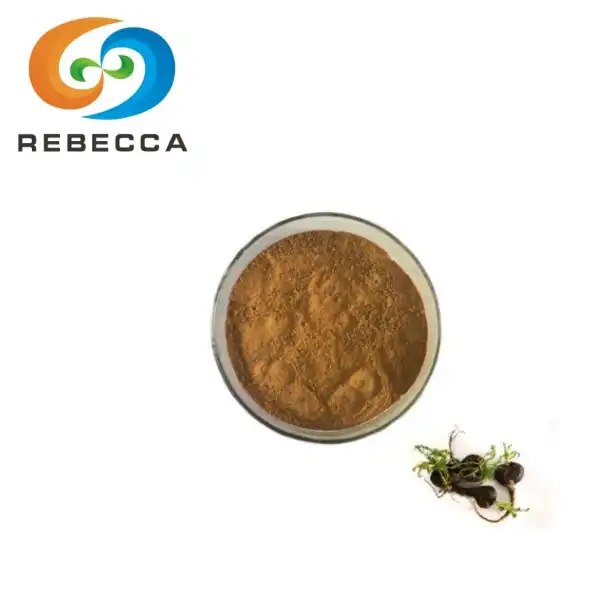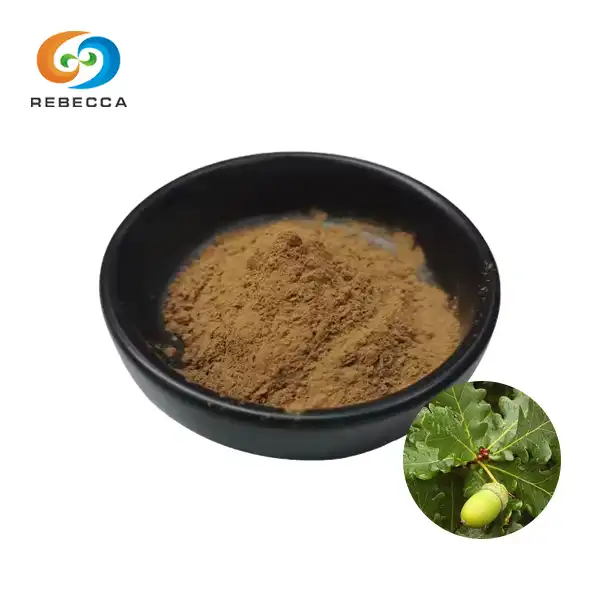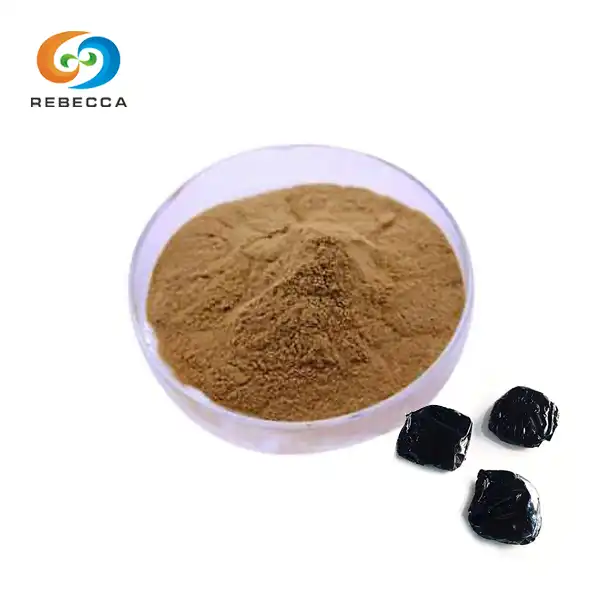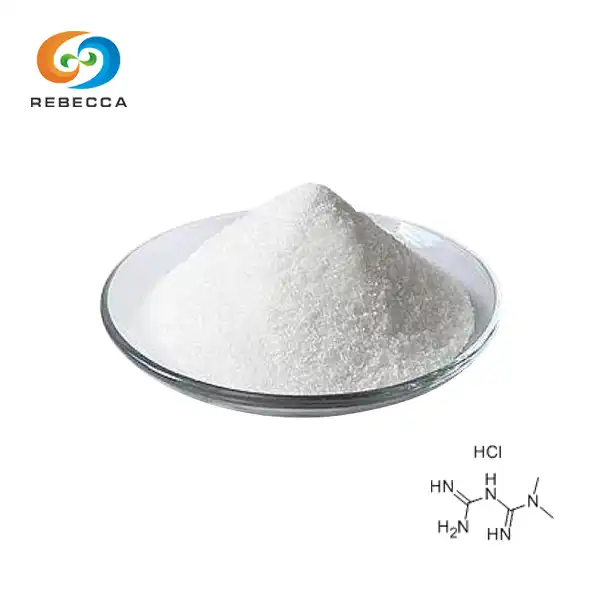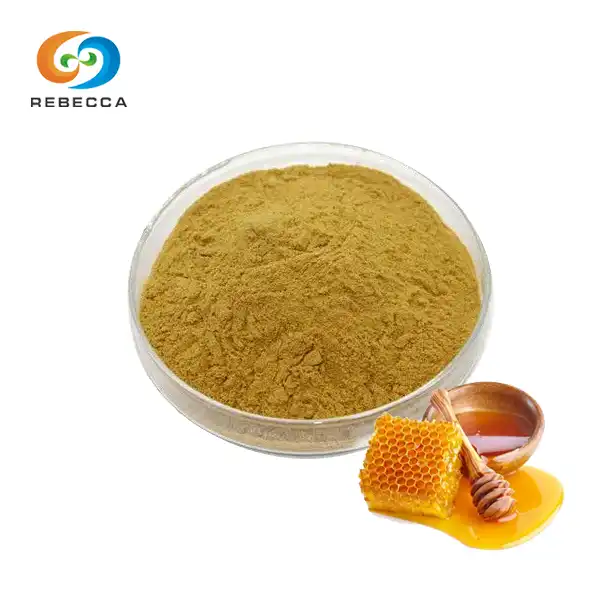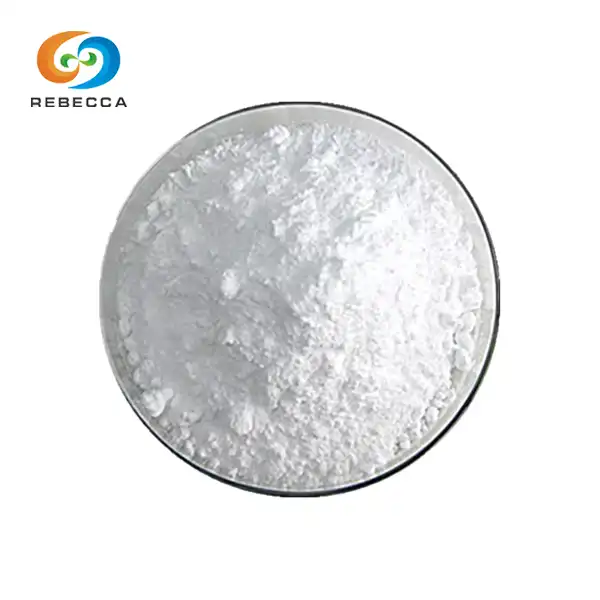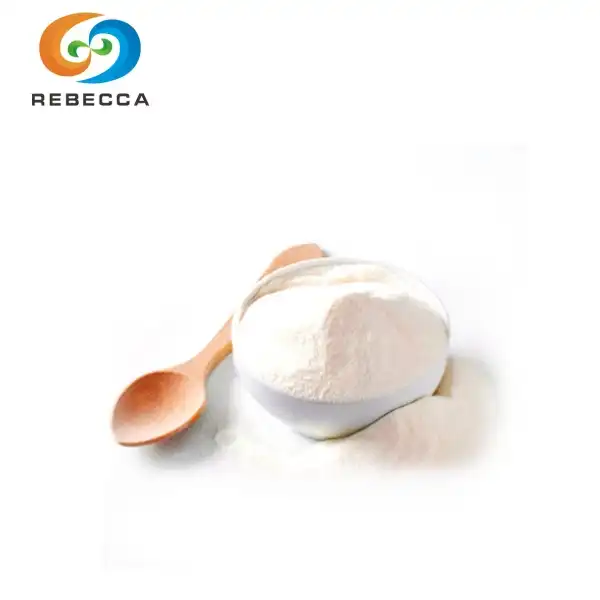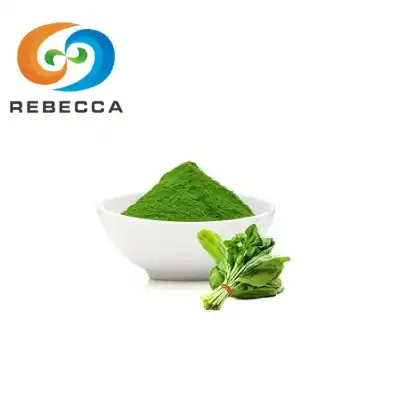Tetrahydrocurcumin For Skin
Are you looking for a powerful skincare ingredient that can revolutionize your beauty routine? In this comprehensive guide, we'll explore the incredible benefits of tetrahydrocurcumin">tetrahydrocurcumin for skin, a potent compound derived from turmeric that's taking the skincare world by storm. It's superior stability compared to other ingredients, and how it can penetrate deeper into your skin for maximum effectiveness.
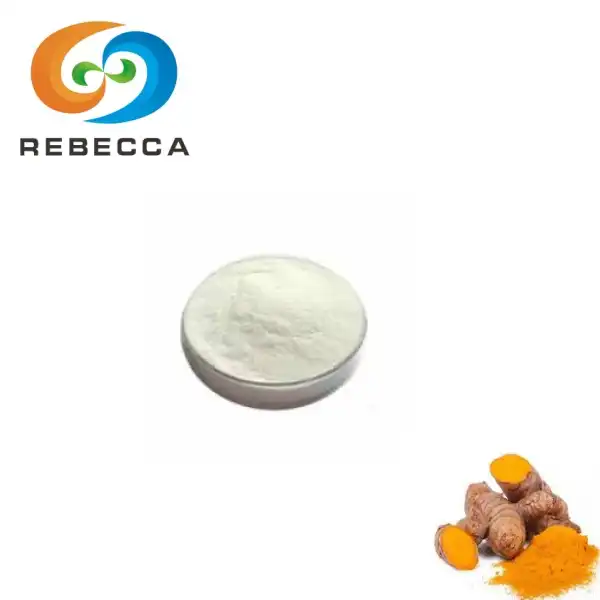
Tetrahydrocurcumin
【English name】: Tetrahydrocurcumin
【CAS No.】: 36062-04-1
【Molecular Formula】:C21H24O6
【Active ingredients】: Tetrahydrocurcumin
【Specification】: Tetrahydrocurcumin 98%
【Appearance】: white powder
What is Tetrahydrocurcumin and How Does it Benefit Your Skin?
Tetrahydrocurcumin (THC) is a bioactive metabolite of curcumin, the main active compound found in turmeric. While curcumin has long been praised for its health benefits, it takes these advantages to the next level, especially when it comes to skincare.
This powerful ingredient, with the molecular formula C21H24O6 and CAS number 36062-04-1, offers a range of benefits for your skin:
- Potent antioxidant properties
- Anti-inflammatory effects
- Skin brightening and evening of skin tone
- Protection against UV damage
- Promotion of collagen production
What sets tetrahydrocurcumin apart is its enhanced stability and improved skin permeability compared to its parent compound, curcumin. This means that it can deliver these benefits more effectively, making it an excellent choice for those seeking high-performance skincare ingredients.

Tetrahydrocurcumin's Superior Stability
One of the most significant advantages of tetrahydrocurcumin is its exceptional stability. Unlike curcumin, which can be unstable and prone to degradation, it maintains its efficacy over time, ensuring that your skincare products remain potent and effective.
Research has shown that tetrahydrocurcumin is more stable than curcumin in various conditions, including different pH levels and exposure to light. A study published in the Journal of Pharmaceutical and Biomedical Analysis found that tetrahydrocurcumin exhibited superior stability compared to curcumin when exposed to different environmental factors.
This enhanced stability translates to several benefits for skincare products:
- Longer shelf life
- Consistent efficacy throughout product use
- Better performance in various formulations
- Reduced risk of irritation due to degradation products
By incorporating tetrahydrocurcumin into your skincare routine, you can be confident that you're using a stable, reliable ingredient that will deliver consistent results over time.
Tetrahydrocurcumin's Skin Permeability: Delivering Benefits Deep Within
Another remarkable feature is its enhanced skin permeability. This means that the compound can penetrate deeper into the skin layers, delivering its beneficial effects where they're needed most.
A comparative study published in the International Journal of Pharmaceutics demonstrated that tetrahydrocurcumin had significantly higher skin permeation compared to curcumin. This improved permeability is attributed to its molecular structure, which allows it to pass through the skin barrier more easily.
The enhanced skin permeability of tetrahydrocurcumin offers several advantages:
- More effective delivery of antioxidants to deeper skin layers
- Improved targeting of skin cells for anti-aging effects
- Enhanced ability to combat free radicals and oxidative stress
- Better overall skin health and appearance
By utilizing tetrahydrocurcumin in your skincare products, you're ensuring that the active ingredients are reaching the areas where they can have the most significant impact on your skin's health and appearance.
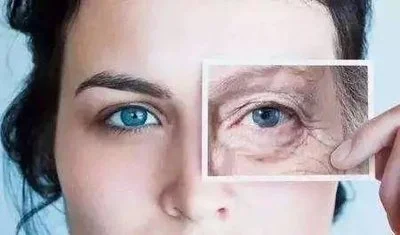
Skincare Benefits of Tetrahydrocurcumin
1. Powerful Antioxidant Protection
Tetrahydrocurcumin is a potent antioxidant that helps protect your skin from free radical damage. This protection is crucial in preventing premature aging, reducing the appearance of fine lines and wrinkles, and maintaining overall skin health. A study in the Journal of Cosmetic Dermatology found that tetrahydrocurcumin exhibited stronger antioxidant activity than vitamin C and E.
2. Anti-Inflammatory Properties
Inflammation is a common culprit behind many skin issues, including acne, rosacea, and eczema. Tetrahydrocurcumin's anti-inflammatory properties can help soothe irritated skin, reduce redness, and promote a more even complexion. Research published in Biomedicine & Pharmacotherapy highlighted its ability to suppress inflammatory markers in skin cells.
3. Skin Brightening and Even Tone
If you're struggling with hyperpigmentation or uneven skin tone, tetrahydrocurcumin could be your new best friend. It has been shown to inhibit tyrosinase, an enzyme involved in melanin production, leading to a more even and radiant complexion. A study in the International Journal of Molecular Sciences demonstrated its effectiveness in reducing melanin content in skin cells.
4. UV Protection
While not a replacement for sunscreen, tetrahydrocurcumin can provide an extra layer of protection against UV damage. Its antioxidant properties help neutralize the free radicals generated by UV exposure, potentially reducing the risk of sun-induced skin damage and premature aging.
5. Collagen Production
It has been shown to stimulate collagen production, which is essential for maintaining skin elasticity and firmness. A study in the Journal of Cosmetic Dermatology found that tetrahydrocurcumin increased collagen synthesis in human skin fibroblasts [6].
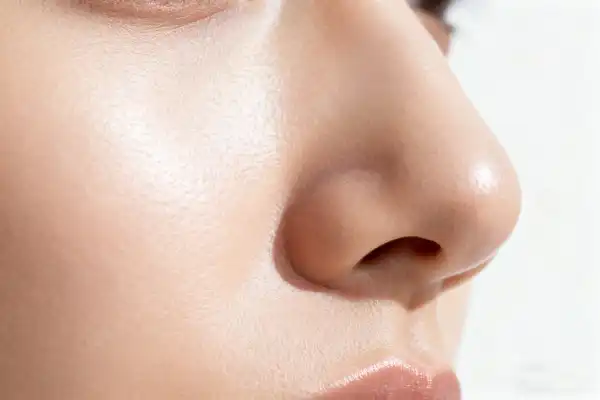
Incorporating Tetrahydrocurcumin into Your Skincare Routine
With its impressive stability, skin permeability, and range of benefits, tetrahydrocurcumin is an excellent addition to various skincare products. You can find this powerful ingredient in:
- Serums
- Moisturizers
- Eye creams
- Anti-aging treatments
- Brightening products
When choosing products containing tetrahydrocurcumin, look for those with a concentration of around 0.5% to 2% for optimal efficacy. As with any new skincare ingredient, it's always best to do a patch test first and introduce it gradually into your routine.
FAQ
Q1: Is tetrahydrocurcumin safe for all skin types?
A: Tetrahydrocurcumin is generally considered safe for all skin types, including sensitive skin. However, as with any skincare ingredient, it's always best to do a patch test before incorporating it into your routine, especially if you have particularly sensitive or reactive skin.
Q2: How long does it take to see results when using tetrahydrocurcumin in skincare?
A: The time it takes to see results can vary depending on the specific product, your skin type, and the skin concern you're addressing. Generally, you may start to notice improvements in skin brightness and texture within a few weeks of consistent use. For more significant anti-aging effects, it may take several weeks to a few months of regular application.
Q3: Can tetrahydrocurcumin be used alongside other active ingredients?
A: Yes, tetrahydrocurcumin can be used in conjunction with other skincare actives. It pairs well with ingredients like vitamin C, retinol, and hyaluronic acid. However, as always, it's best to introduce new products gradually and consult with a dermatologist if you have any concerns about combining different active ingredients.
Tetrahydrocurcumin For Sale
It is a game-changing ingredient in the world of skincare, offering superior stability, enhanced skin permeability, and a wide range of benefits for your skin. Its potent antioxidant and anti-inflammatory properties, combined with its ability to brighten skin and stimulate collagen production, make it a versatile and effective addition to any skincare routine.
If you're interested in incorporating this powerful ingredient into your skincare products or formulations, Rebecca Bio-Tech offers high-quality tetrahydrocurcumin with the specifications 98%. For more product information, to request samples, or to discuss your custom requirements, please don't hesitate to contact us at information@sxrebecca.com.
References
[1] Wang, Y. J., Pan, M. H., Cheng, A. L., Lin, L. I., Ho, Y. S., Hsieh, C. Y., & Lin, J. K. (1997). Stability of curcumin in buffer solutions and characterization of its degradation products. Journal of pharmaceutical and biomedical analysis, 15(12), 1867-1876.
[2] Petchsomrit, A., Sermkaew, N., & Wiwattanapatapee, R. (2017). Effect of gelators on the skin permeation and antioxidant activity of semi-solid formulations containing Curcuma longa extract. Pharmaceutics, 9(4), 41.
[3] Majeed, M., Badmaev, V., Shivakumar, U., & Rajendran, R. (1995). Curcuminoids: antioxidant phytonutrients. Nutriscience Publishers, Inc., Piscataway, NJ, 1995, 3-80.
[4] Meng, F. C., Zhou, Y. Q., Ren, D., Wang, R., Wang, C., Lin, L. G., ... & Lee, S. M. Y. (2018). Turmeric: A review of its chemical composition, quality control, bioactivity, and pharmaceutical application. In Natural and Artificial Flavoring Agents and Food Dyes (pp. 299-350). Academic Press.
[5] Lee, J. H., Jang, J. Y., Park, C., Kim, B. W., Choi, Y. H., & Choi, B. T. (2010). Curcumin suppresses alpha-melanocyte stimulating hormone-stimulated melanogenesis in B16F10 cells. International journal of molecular medicine, 26(1), 101-106.
